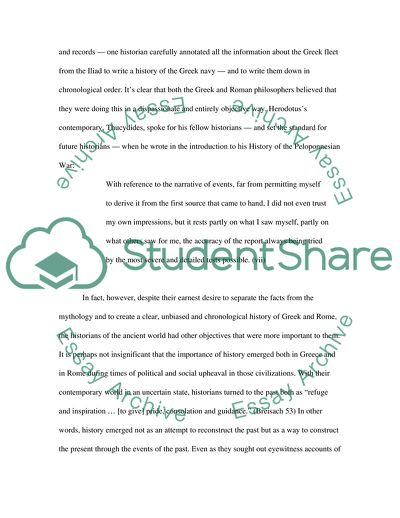Cite this document
(The Fallacy of History-as-Truth in the Ancient and Modern Worlds Coursework Example | Topics and Well Written Essays - 1500 words, n.d.)
The Fallacy of History-as-Truth in the Ancient and Modern Worlds Coursework Example | Topics and Well Written Essays - 1500 words. https://studentshare.org/history/1728235-ancient-historian-texts
The Fallacy of History-as-Truth in the Ancient and Modern Worlds Coursework Example | Topics and Well Written Essays - 1500 words. https://studentshare.org/history/1728235-ancient-historian-texts
(The Fallacy of History-As-Truth in the Ancient and Modern Worlds Coursework Example | Topics and Well Written Essays - 1500 Words)
The Fallacy of History-As-Truth in the Ancient and Modern Worlds Coursework Example | Topics and Well Written Essays - 1500 Words. https://studentshare.org/history/1728235-ancient-historian-texts.
The Fallacy of History-As-Truth in the Ancient and Modern Worlds Coursework Example | Topics and Well Written Essays - 1500 Words. https://studentshare.org/history/1728235-ancient-historian-texts.
“The Fallacy of History-As-Truth in the Ancient and Modern Worlds Coursework Example | Topics and Well Written Essays - 1500 Words”. https://studentshare.org/history/1728235-ancient-historian-texts.


